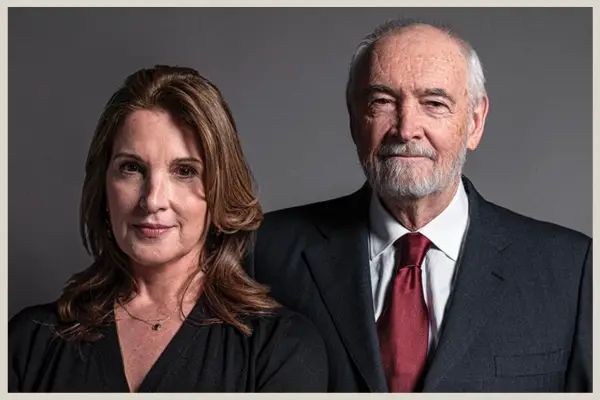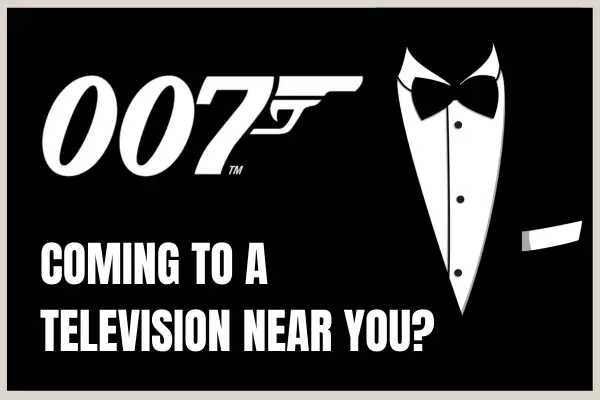Is It Really Time for a James Bond TV Series?
The murmur of transitioning James Bond to a television series is gaining momentum, and to some it appears almost inevitable. But does the shifting landscape of entertainment truly beckon for 007’s presence on the small screen? Is it really time for James Bond to transition to TV?
Shaken, not stirred – a phrase that has infiltrated the vernacular of even the most casual cinemagoer. In the panoramic landscape of celluloid, the James Bond franchise emerges as an unparalleled juggernaut with seductive charm of its eponymous protagonist.
From the suave era of Sean Connery to the brooding charisma of Daniel Craig, the Bond saga has been an ever-evolving tableau, reflecting the shifting contours of global politics and pop culture alike.
The character, created by author Ian Fleming, made his silver screen debut in Dr. No (1962), and since then, he has been nothing short of a cultural icon. Adaptability, however, has been Bond’s secret weapon, allowing each portrayal to resonate with the spirit of its epoch.
As we navigate through the golden epoch of television, the question whether Bond is destined to exchange the cinematic grandiosity of the silver screen for the financial allure of television series grows stronger.
To the purists, such a proposition might border on sacrilege. However, in a period witnessing a seismic shift in narrative forms, the prospect of this transition seems not merely conceivable, but tantalizingly potent.
Join me as we traverse through uncharted territories, probing the potentials and prospects that beckon James Bond. Could the shift to the television realm unlock new dimensions of 007’s mystique, or does it pose a perilous gamble? The resolution, dear readers, is far from clear-cut.
Story continues below…
The Changing Landscape of Entertainment
The landscape of entertainment finds itself at the cusp of transformation, as streaming platforms such as Netflix, Amazon Prime, and Disney+ have ushered in a new era.
These platforms have become the modern-day canvases for storytellers, painting intricate narratives and breathing life into characters with a depth hitherto unseen in the confined timeframe of cinema. Prestige television – a term once an oxymoron – is now synonymous with high-calibre storytelling, and movie actors are seen more and more .
Navigating through this transformative terrain, one can’t help but witness the flourishing examples of film franchises that have embraced the allure of episodic narratives. The expansive universe of Star Wars found a new home on Disney+.
Similarly, the Marvel Cinematic Universe has seamlessly expanded its realms through series such as WandaVision and Loki, exploring the multifaceted personas of beloved characters and adding layers to its ever-evolving mythology.
With this in mind, the question beckons – how might James Bond adapt and flourish if he transitions to TV?
The proposition is undeniably intriguing. The transition to television could provide the Bond franchise with an opportunity to delve deeper into the complexities of its characters, and weave narratives that resonate with contemporary themes and sensibilities.
The episodic format offers a playground for creativity, allowing for the exploration of subplots and character arcs that the constraints of a feature film might not permit. In embracing this trend, it could be argued that the transition to the small screen is an opportunity to redefine and reimagine the very fabric of the franchise.

What TV Could Do for James Bond
Movies, confined by their temporal boundaries, often offer snapshots of a character’s essence, with narratives primarily driving towards resolution. Television offers much more time into the lives of characters, and invites us to dwell into a character’s psyche, unveiling layers and traversing depths, rendering a more nuanced and multifaceted portrayal.
For decades, beneath Bond’s suave exterior and the veneer of confidence, there has been a reservoir of untapped potential lying in wait. The transition to television heralds an opportunity to delve deeper into Bond’s origins, unravel his experiences, and explore facets of his personality that have remained shrouded in mystery.
Beyond our titular protagonist, the Bond universe is brimming with a diverse pantheon of villains, epitomizing intrigue and embodying multifarious shades of morality. Television is a fertile ground for cultivating antagonists of unparalleled depth and complexity.
Freed from the constraints of cinematic runtime, writers possess the liberty to craft villains with more intricate motives, nuanced actions, and a lingering presence that transcends the boundaries of individual episodes.
This potential reimagining offers the franchise a chance to elevate the narrative beyond the quintessential cat-and-mouse chase, delving into the philosophical quandaries of morality and identity that lie at the heart of the Bond saga.
While film audiences are transient passengers, navigating through a whirlwind of emotion, drama, and resolution within a few fleeting hours, television offers a narrative marathon, revealing intricate patterns and hidden depths with each passing episode.
The shift to television bestows the gift of time—time to delve into the subtleties of Bond’s worlds, and to reimagine and elevate iconic moments of the franchise.

But Wait a Minute!
As we contemplate the transition of Bond from the silver screen to television, a delicate equilibrium beckons – a balance between preserving the essence of James Bond and embracing the winds of innovative storytelling.
Integrating traditional elements with innovative storytelling is offers a diverse array of possibilities, but isn’t the James Bond franchise already a success story? The temptation to overcreate could potentially lead to a dilution of the Bond franchise.
The risk of overdoing, of saturating the narrative with excesses and extravagances, is a shadow that looms over the transition. The question that echoes is, should we change a winning formula? Can we maintain the delicate balance between the allure of the unknown and the comfort of the familiar?
Addressing these challenges necessitates a vision that is both grounded and visionary, a perspective that honors the legacy of Bond while embracing the potential of the future. The path is uncharted, the terrain is unknown, but the compass of narrative integrity and creative ingenuity guides the way.
Is it Really Time for a James Bond TV Series?
Is it really time for a James Bond TV series? No doubt, a television adaptation promises a richer exploration into the enigma that is James Bond, and a canvas wide enough to delve deeper into the tapestry of characters that inhabit his world. Yet, the spectre of overkill looms large.
The iconic status that James Bond has meticulously crafted in the glimmering realms of cinema cannot be overstated. The silver screen has been the crucible where the character of 007 has been forged, etched, and immortalized. This legacy has given rise to a fandom, both passionate and discerning, a collective that holds the very essence of James Bond sacred.
The financial allure is undeniably potent, and the world is watching, with bated breath and eager anticipation. Everyone wants a piece of the action, but as the reels roll and the credits ascend, one can’t help but ponder—will the transition dilute the legacy, or will it elevate the lore?
The stage is set, the spotlight is on, and only time will tell if it’s truly time for James Bond to embark on a new kind of mission.





